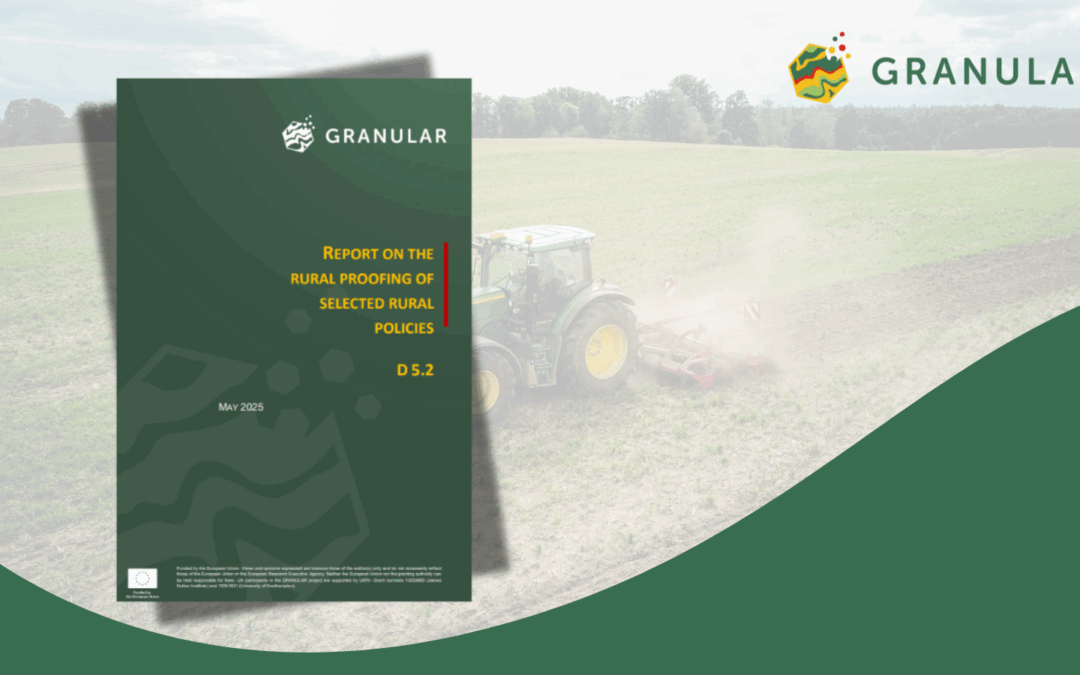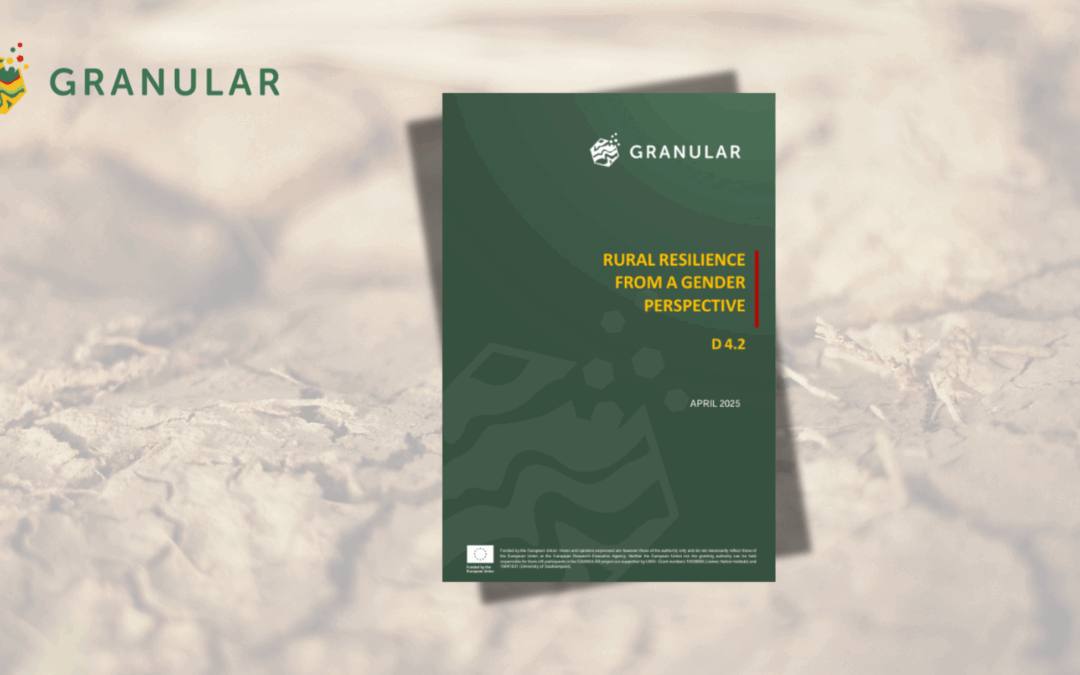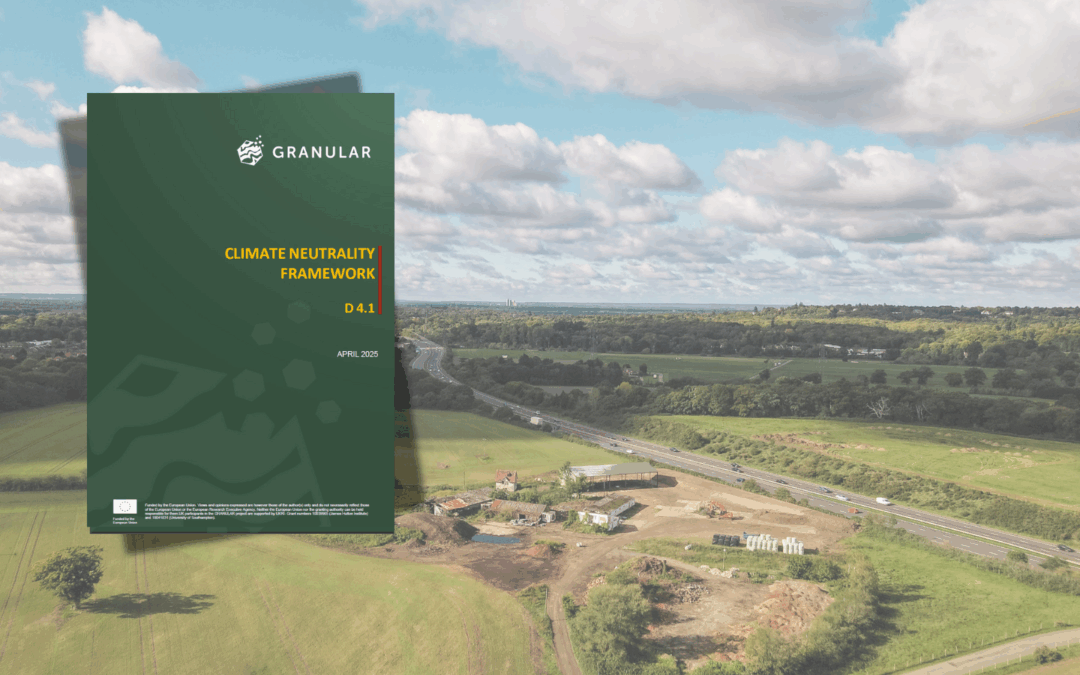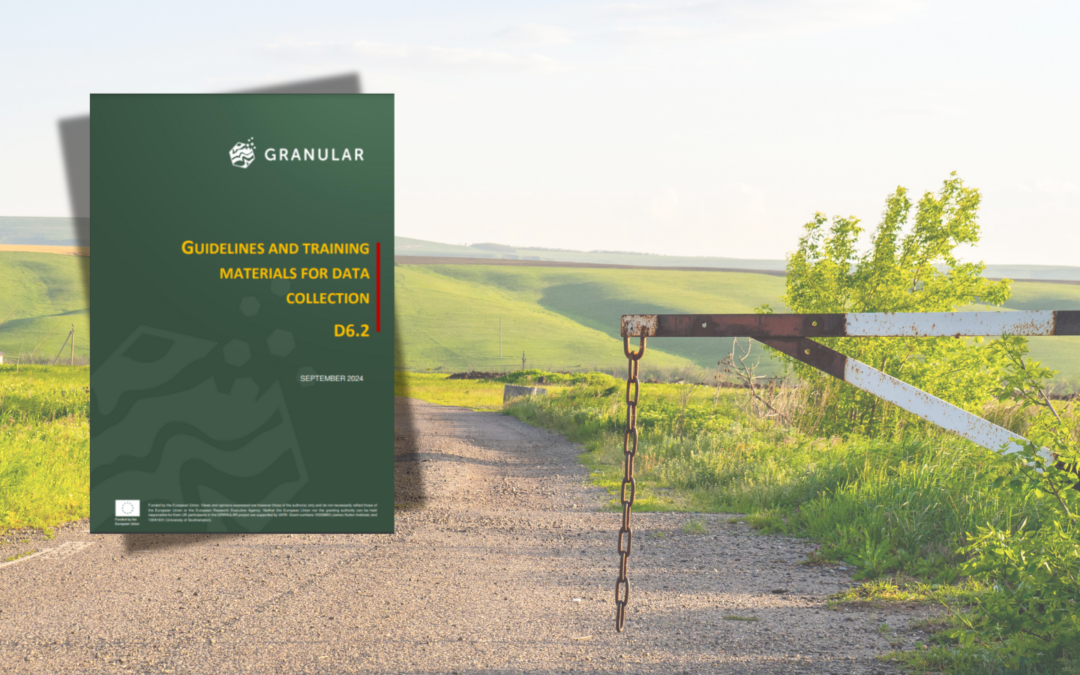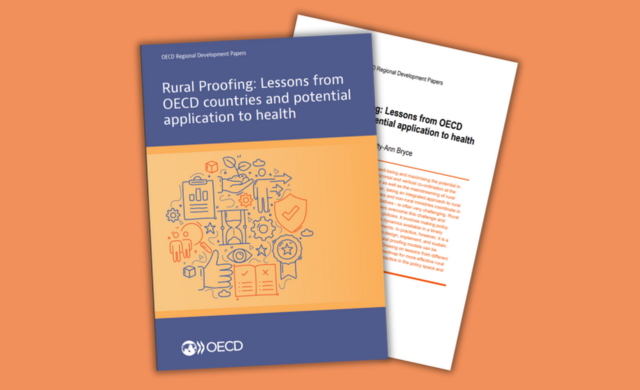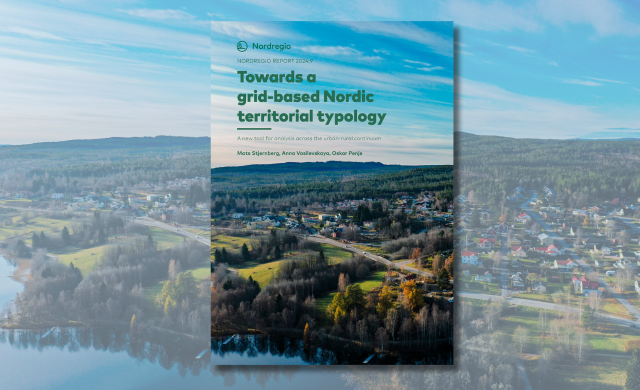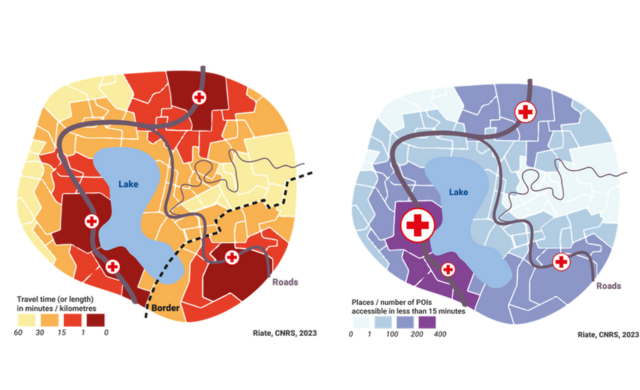Authors: Henk Oostindie, Bettina Bock, Rural Sociology, Wageningen University
Rural areas are different from one another. They range across islands, mountains, remote rural areas, rural areas close to cities and so on. We need a tool to be able to picture and investigate these differences to improve policymaking in these areas. In this blog post, Henk Oostindie and Bettina Bock presents the Rural Diversity Compass, a tool designed to better analyse rural diversity based on the concept on multi-spatiality and multi-functionality.
One Rural Diversity Compass, Four Functionalities
Building on the concepts of multi-spatiality and multifunctionality, GRANULAR has elaborated a prototype known as the Rural Diversity Compass. This framework aims to distinguish between various functionalities within rural areas, highlighting the key aspect of residential, productive, environmental and recreational functionalities in defining contemporary rurality.
The prototype Rural Diversity Compass serves as an analytical tool to gain deeper insights into contemporary rural differentiation tendencies, drivers and outcomes. It achieves this by focusing on the place-specificity of rural functionality interaction patterns, which are critical aspects for contemporary rural policy making and for addressing rural proofing challenges.
Twenty-four components
The four functionalities of the GRANULAR Rural Diversity Compass are further characterised with the help of 24 components, each resonating with specific functionality characteristics. These components are drawn from specific bodies of rural literature, encompassing specific rural boundary orientations and addressing specific rural indicator opportunities and challenges (see Figure 1).
Figure 1: GRANULAR’s Prototype Rural Diversity Compass
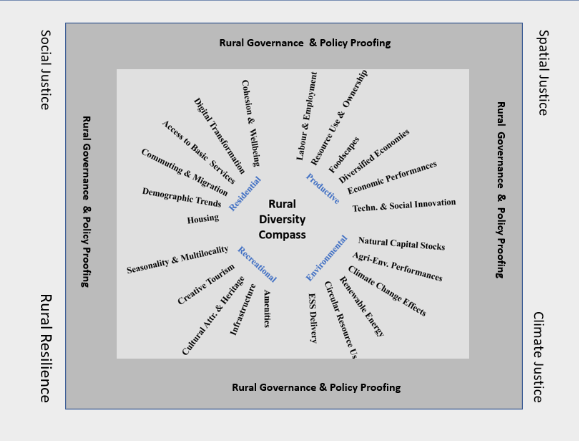
Policy challenges linked to social, spatial and climate justice, as well as rural resilience, stand as overarching principles guiding rural policy formulation and impact assessments. It is worth noting that these policy principles may be subject to discussion and debate among various stakeholders, including rural and urban communities, public, private, and civil actors who play significant roles in shaping rural practices, representations and futures.
Why a Rural Diversity Compass? What’s next?
The prototype Compass aims to contribute to GRANULAR’s overarching project objectives, which encompass rural data-sourcing, rural policy guidance and inclusive rural policy making. These objectives are and will continue to be, further investigated through close collaboration with practitioners involved in GRANULAR’s Living Labs and Replication Labs, which represent a broad spectrum of rural functionalities across Europe, balancing and re-balancing concerns and efforts to address the multifaceted challenges of rural areas.
The Rural Diversity Compass will be further developed based on the findings from local actors and relevant literature.
Want to learn more? Read the full report here.

